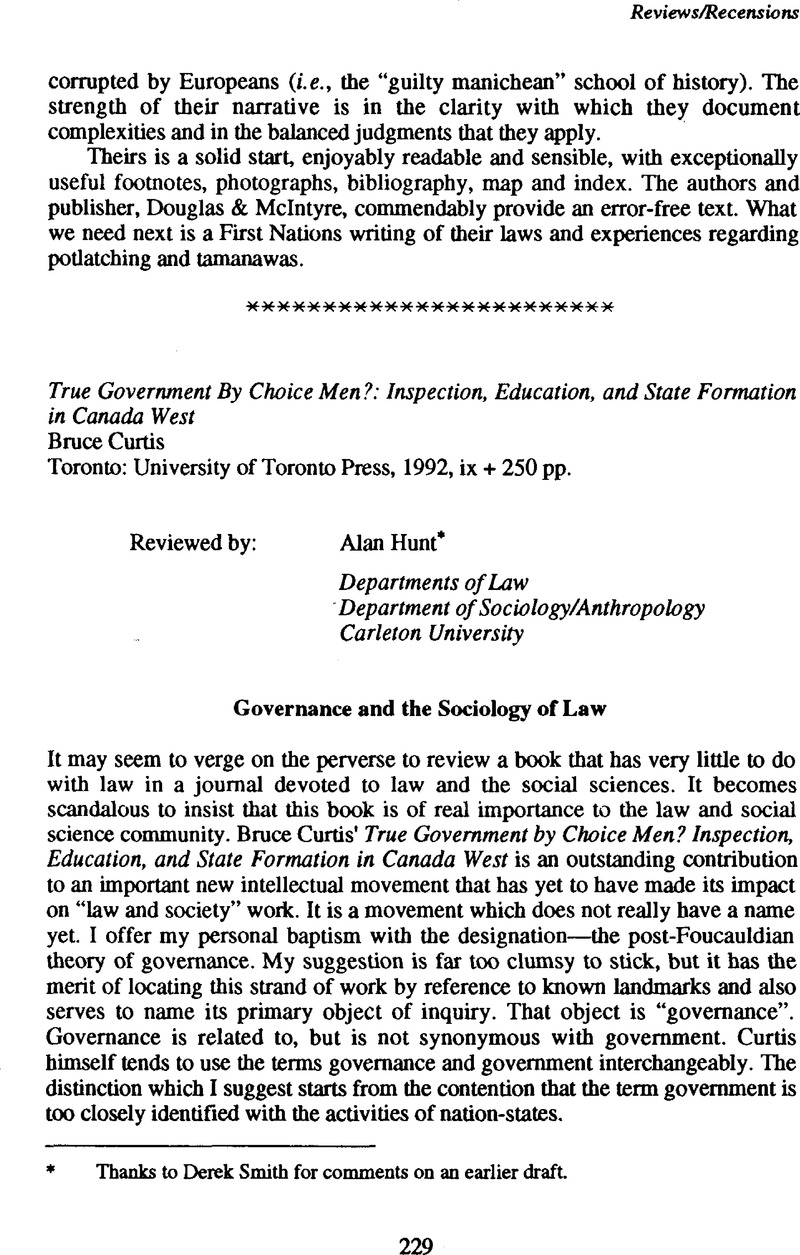No CrossRef data available.
Published online by Cambridge University Press: 18 July 2014

1. Foucault, M., “Lecture on Governmentality,” reprinted in Burchell et al., The Foucault Effect: Studies in Governmentality (Hemel Hampstead: Harvester Wheatsheaf, 1991) at 87–104Google Scholar.
2. Burchell et al., ibid.; Dean, M., The Constitution of Poverty: Toward a Genealogy of Liberal Governance (London: Routledge, 1991)Google Scholar; Donald, J., Sentimental Education: Schooling Popular Culture and the Regulation of Liberty (London: Verso, 1992)Google Scholar; Hunter, I., Culture and Government: The Emergence of Literary Education (London: Macmillan, 1988)CrossRefGoogle Scholar; Miller, P. & Rose, N., “Governing Economic Life” (1990) 19:1Economy and Society 1CrossRefGoogle Scholar; Rose, N., Governing the Soul: The Shaping of the Private Self (London: Routledge, 1989)Google Scholar.
3. MacDonagh, O., “The Nineteenth Century Revolution in Government: A Reappraisal” (1958) 1 Historical Journal 52CrossRefGoogle Scholar; MacDonagh, O., A Pattern of Government Growth: The Passenger Acts and their Enforcement (London: MacGibbon & Kee, 1961)Google Scholar.
4. Abrams, P., “History, Sociology, Historical Sociology” (1980) 87 Past and Present 3CrossRefGoogle Scholar; Abrams, P., Historical Sociology (Shepton Mallet: Open Books, 1982)Google Scholar.
5. Corrigan, P., Capitalism, State Formation and Marxist Theory (London: Quartet, 1980)Google Scholar; Corrigan, P. & Sayer, D., The Great Arch: English State Formation as Cultural Revolution (London: Basil Blackwell, 1985)Google Scholar.
6. Burke, P., Popular Culture in Early Modern Europe (London: Temple Smith, 1978)Google Scholar.
7. These issues were explored in Curtis, B., Building the Educational State: Canada West, 1836–1871 (Baracombe: Falmer Press, 1988)Google Scholar.